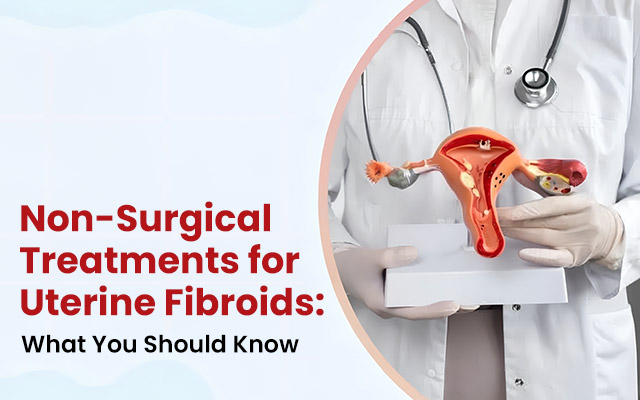October 23, 2025 | by Admin

Many women suffer silently from fibroids without realising that effective options exist. Visiting Petals Family Clinic- a trusted gynaecology treatment clinic in Kolkata ensures expert guidance and safe solutions. In this blog, we will explore non-surgical fibroid treatment, medications, procedures, lifestyle remedies, and when to consider surgery.
Fibroids are non-cancerous growths in the uterus. They develop from muscle tissue.
Uterine fibroid symptoms include heavy bleeding, pelvic pain, and bloating.
Risk factors include age, family history, obesity, and hormonal imbalance.
Non-surgical fibroid treatment helps women avoid surgery and related complications.
Most non-surgical methods allow quicker recovery with fewer side effects.
These treatments help preserve fertility, making them ideal for younger women.
Uterine fibroids medication offers pain control and symptom relief for mild cases.
Hormonal therapy for fibroids regulates cycles and supports fibroid shrinkage without surgery.
While effective, medications may not provide permanent fibroid treatment options.
Minimally invasive fibroid treatment like UAE, blocks the blood supply, shrinking fibroids.
This modern option uses ultrasound waves for targeted fibroid destruction.
Each method varies in effectiveness, recovery time, and fertility outcomes.
Balanced diets support fibroid pain management and symptom reduction.
Regular exercise helps regulate hormones and improve overall fibroid management for women.
Some women try natural remedies for fibroids, but results often vary.
Doctors recommend regular checkups to track fibroid size and overall health.
Surgery may be necessary if symptoms worsen or fertility is severely affected.
Women now have multiple safe choices beyond surgery. From uterine fibroids medication to minimally invasive fibroid treatment, options exist for every stage.
Visit Petals Family Clinic, a trusted gynaecology treatment clinic in Kolkata, for expert care and personalised fibroid treatment options.
Heavy periods and pelvic pain are common symptoms.
Yes, with hormonal therapy for fibroids and minimally invasive methods.
It avoids surgery, ensures faster recovery, and preserves fertility.
They may ease symptoms but rarely replace medical treatments.
Surgery is best when symptoms worsen or non-surgical methods fail.